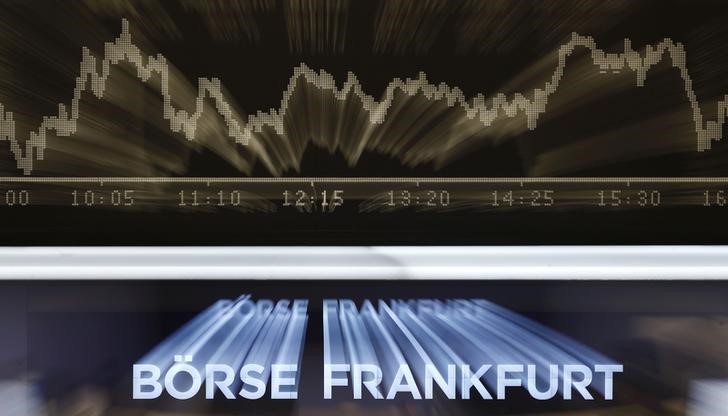By Jonathan Gould and Andreas Kröner
FRANKFURT (Reuters) - The planned $30 billion merger between Deutsche Boerse and LSE Group will support the EU's Capital Markets Union (CMU) and bolster growth in the bloc's flagging economy, the head of the German exchange operator's biggest division told Reuters.
The CMU aims to make it easier for European companies to raise funds from investors such as pension funds and life insurers, instead of relying on bank lending, and some economists think strong market infrastructure - such as a big exchanges operator - could be crucial to making it work.
"Having a global player in the exchange industry is critical for Capital Markets Union," Deutsche Boerse (DE:DB1Gn) board member Jeffrey Tessler said in an interview.
"The timing of this merger is perfect; it brings Europe and the UK closer together," added the 61-year-old American, who is responsible for businesses such as derivatives trading, clearing and settlement that provided three quarters of Deutsche Boerse's 2.4 billion euros ($2.7 billion) in revenue last year.
Deutsche Boerse and LSE (L:LSE) announced in February they were in talks to create the world's biggest exchange by revenue. But the plan could prompt a counterbid for LSE by other players, such as U.S. exchanges ICE (N:ICE) or CME (O:CME).
Tessler said Europe's exchanges must not be allowed to go the way of its banks, which have fallen behind U.S. rivals.
"It is not a thinly held view that there is no global (banking) champion located in Europe any longer," he said.
While regulators are expected to take months to evaluate the merger, it is seen favourably by a senior German official close to Chancellor Angela Merkel.
"There is an argument that you need a bigger European player," said the official, who asked not to be named, adding the merger would bring advantages for Europe and the exchanges' customers, such as lower trading costs.
"The American exchanges are much bigger, so something needs to be done," the official added.
LIFEBLOOD
Tessler, given responsibility for the broad "Clients, Products and Core Markets" business area at the start of this year, said developing a common approach to the use of collateral for trading was a major benefit of the proposed merger.
Long considered esoteric, collateral management systems have become a central focus of banks, central banks and clearing parties in the wake of the financial crisis.
"Collateral is the lifeblood of the financial system," Tessler said, adding that while banks needed to hold the right amount to secure their trading exposure, holding excess collateral was not beneficial to the economy.
"With the merger, banks would be able to deploy collateral more effectively. When they need less collateral for trading, they would have additional funds to lend money to companies and spur growth in Europe," Tessler said.
The groups' clearing houses - Deutsche Boerse's Eurex Clearing and LSE's LCH.Clearnet - will stay separate but the merger would allow customers to net their positions, potentially creating significant savings. A common risk management approach would allow this to happen without jeopardising safety.
"If we can feed our systems with data from Eurex Clearing and LCH.Clearnet, this would increase the safety of the financial system," Tessler said.
Deutsche Boerse and LSE have said their merger could prosper even if Britain votes to leave the EU in a referendum on June 23, although they have warned such a move could put the CMU project at risk.

($1 = 0.8879 euros)